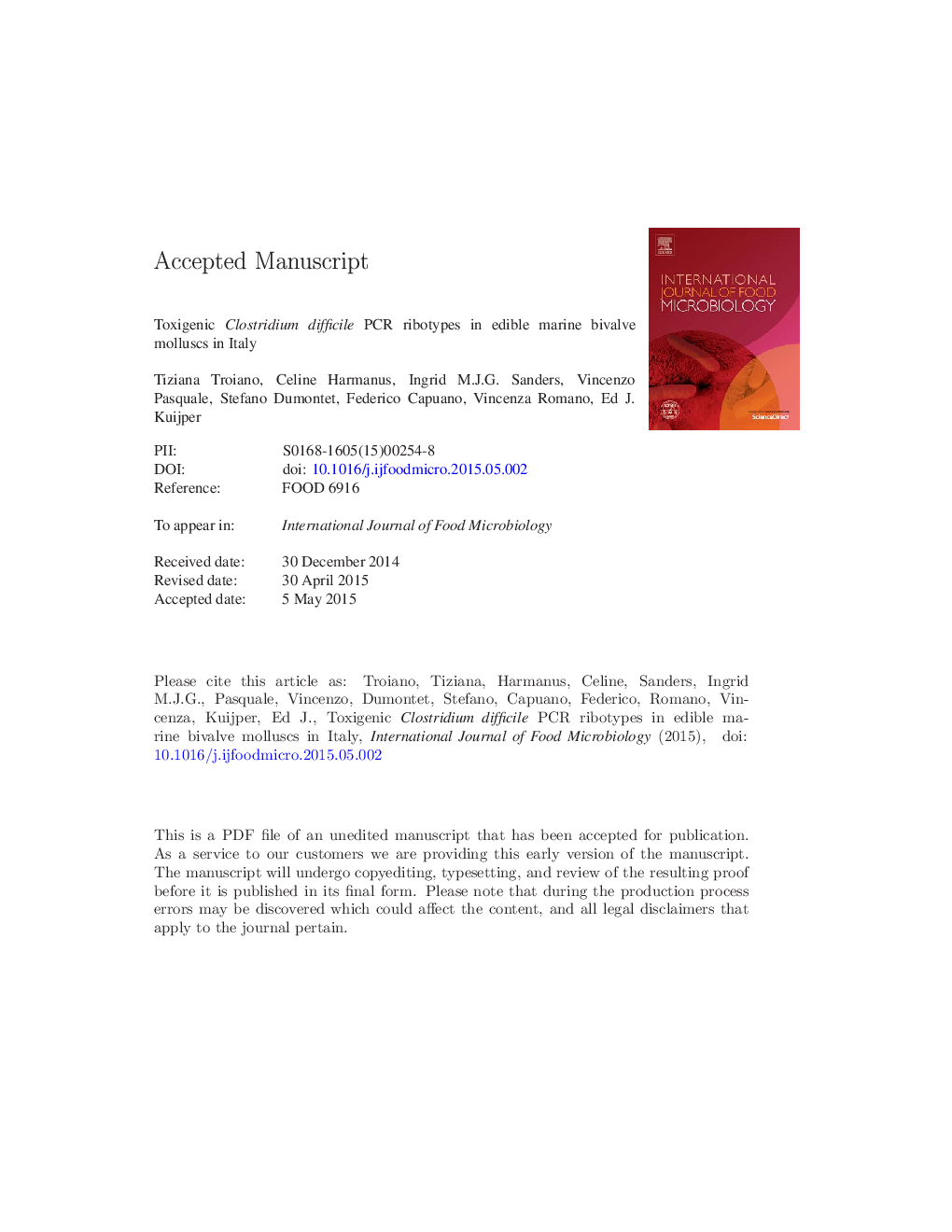| Article ID | Journal | Published Year | Pages | File Type |
|---|---|---|---|---|
| 6289884 | International Journal of Food Microbiology | 2015 | 21 Pages |
Abstract
Even though food of animal sources and different foodstuffs are well known to be potentially carrier of Clostridium difficile, few data are available on the occurrence of C. difficile in seafood. This work investigated the occurrence of C. difficile in edible bivalve molluscs in southern Italy. Out of the 925 investigated samples, 3.9% contained C. difficile. Eighteen strains harboured both genes for toxins A and B whereas 1 only had toxin B gene. Binary toxin genes were found in 22.2% of the isolates. The most frequently ribotypes found were 078/126 (22.2%), 010 (19.4%), and 001 (8.3%). All isolates were susceptible to metronidazole, vancomycin, fidaxomicin, and to the new semisynthetic thiopeptide antibiotic LFF571, whereas 19.4% of them were resistant to moxifloxacin, 30.5% to clindamycin, 38.8% to erythromycin, and 100% to ciprofloxacin. This study points out that edible molluscs could be a potential source of toxigenic C. difficile ribotypes and a potential risk for human health.
Keywords
Related Topics
Life Sciences
Agricultural and Biological Sciences
Food Science
Authors
Tiziana Troiano, Celine Harmanus, Ingrid M.J.G. Sanders, Vincenzo Pasquale, Stefano Dumontet, Federico Capuano, Vincenza Romano, Ed J. Kuijper,
